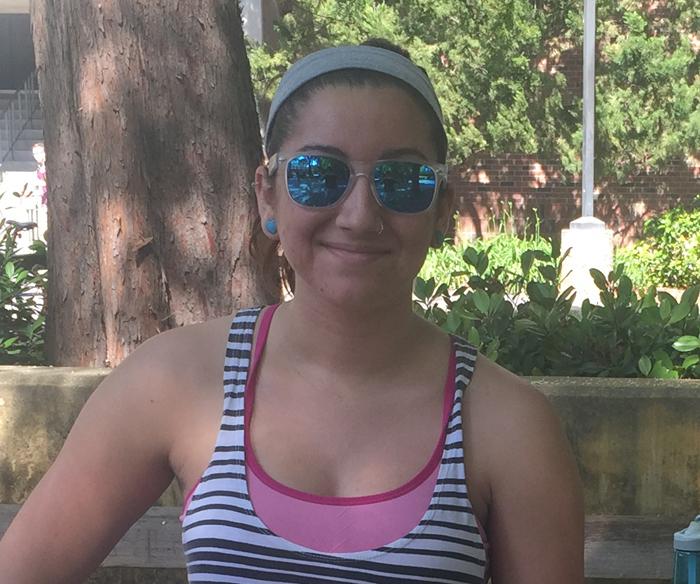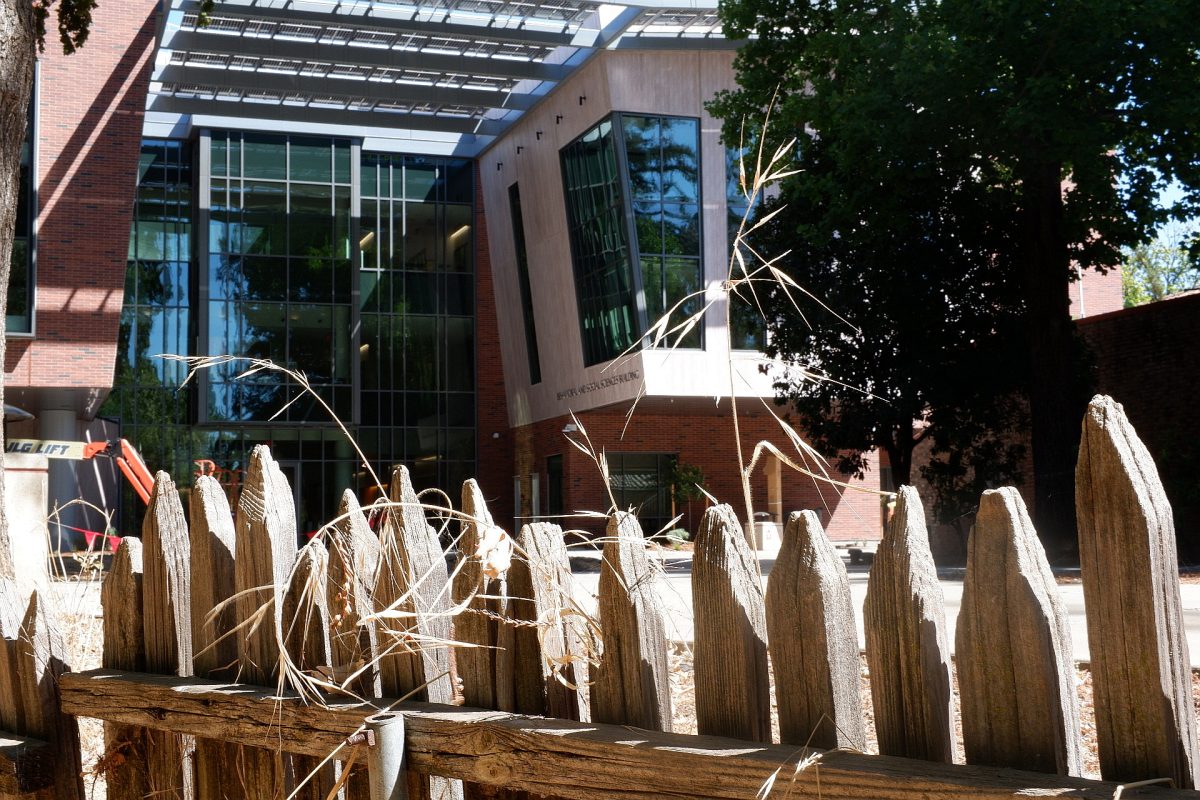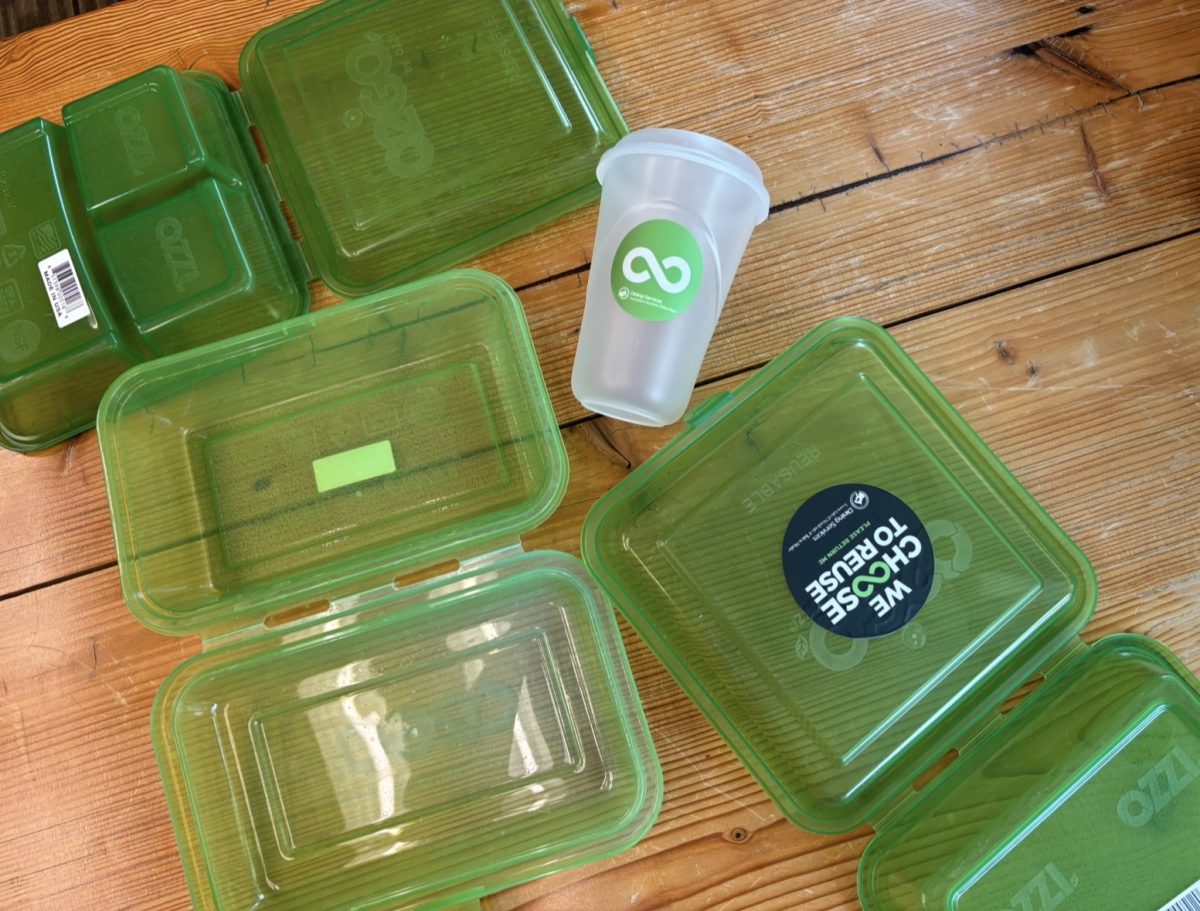With more than 2 million hidden treasures worldwide, students can spend hours searching for hidden mysteries all over Chico as part of a global scavenger hunt called geocaching.
The first step to finding a cache involves students accessing maps which have the geographic locations using the website or mobile application. The hard part begins when students start searching high and low to find the hidden goods.

Karissa Linares, a senior animal science major, said she loves how geocaching keeps her and her friends occupied.
“If I’m just hanging out with friends, normally we don’t have money to do stuff, so we are like, ‘Let’s go geocaching,'” Linares said.
Linares has been geocaching since 2011 and one of her favorite places to do so is in Bidwell Park, she said.
“I really like doing it when I’m hiking,” Linares said. “You’re already out there walking, so why not have an objective? It gives you a thing to do on the side as opposed to just wandering around with people.”
Caches come in all sorts of sizes, shapes and difficulty levels. Typically when a cacher finds a big one, they are supposed to take a trinket and replace it with another trinket, Linares said.
Most of the items can be traced on the website to see where they have been and where they are going to be. Based on the app, most of the caches in Chico are generally small, although big ones do exist.
“I’ve actually never found one big enough to leave an item,” Linares said. “I always find really little, really discreet ones, which is great — but I want to find one of those big ones where you leave a trinket.”

Michael Barackman, a first-year economics major, has been geocaching since a young age.
“I first got involved in geocaching through Boy Scouts,” he said. “We went one time with our scout leader, and I thought it was a lot of fun because we found something that most people wouldn’t find.”
Geocaches can be tricky to find. Some stand out to the naked eye, but others are camouflaged so well that you could be staring directly at it and still not notice it, Linares said.
“It depends on where you go,” Linares said. “One time we found two, and I found that exciting because they were hard. Other days we’ve gone where we don’t find anything.”
Depending on the cache the student chooses to find, they might have to get down and dirty.
“They give you a geographic location of where it’s at, and you have to look around, under and through things to find it,” Barackman said. “It’s not just lying on the ground. Sometimes you have to look in weird places.”
A common issue hunters find themselves facing is a missing cache. It is possible that muggles — those who are unaware of geocaching — have moved or thrown away the cache not knowing what it is. This is Linares’ biggest issue with the activity, she said.
“I think the biggest thing that happens is most people don’t even know it’s a geocache, so they just throw it away,” Linares said. “The application is great because sometimes people will update it saying the cache is missing.”
Whether students are looking for alternative ways to spend their time or just want to pick up a new hobby with friends, there are many geocaching opportunities in Chico.
“I think it’s a great thing to do,” Linares said. “You’re part of a little community that not many know about. It’s really cool to know that random people have gone and found the same thing as you.”
Nick Bragg can be reached at [email protected] or @Nick981 on Twitter.








